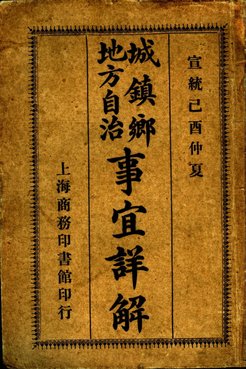Book project: evidences of truth. Francisco Rodrigues SJ (1515–1573) and normative knowledge production in early modern portuguese Asia
Research Project

This collective volume aims to explore the life and times of an often overlooked figure in the history of Jesuit missions in Asia under the Portuguese Padroado: Francisco Rodrigues SJ (1515–1573). A pivotal figure in the practical application of moral theology and canon law within missionary contexts, while his writings influenced generations of confessors in areas under the patronage of the Iberian crowns, including India, China, Japan and the Philippines.
Building upon the premises set forth by the initial three volumes of the Max Planck Studies in Global Legal History of the Iberian Worlds series (Knowledge of the Pragmatici, The School of Salamanca: A Case of Global Knowledge Production, and Norms Beyond Empire: Law-Making and Local Normativities in Iberian Asia, 1500–1800), this volume directs its focus toward a relatively obscure figure, aiming to illuminate the diverse facets of how casuistry developed within a colonial environment. Through comparative and innovative analyses, the book aims to illuminate Rodrigues’ political engagements, the internal conflicts within the Society of Jesus during its initial decades in Portuguese India, the manifold applications of canon law and theology in the pragmatic normative literature produced in Jesuit colleges, and the contradictions and continuities in the production of normative literature in Asia as compared to the Americas.
Born in Odemira, Southern Portugal, in 1515, Rodrigues departed for India from Lisbon in 1556. As rector of the Jesuit College of São Paulo in Goa, he exerted significant influence over local politics, played a decisive role in conflicts involving local religions, and shaped the course of the First Provincial Council of Goa in 1567. His theological and legal opinions touched upon topics such as matrimony and other sacraments, the legality of Asian enslavement, trade practices and their religious implications, contract abuses, and customary practices within the moral economy of the Portuguese empire. By drawing upon a wide array of ecclesiastical authorities, he invoked various summas, the works of Aquinas, Portuguese royal and ecclesiastical law, and new interpretations of moral issues by the School of Salamanca to address the challenges encountered by missionaries and ecclesiastical authorities in Asia. Through the collaboration of scholars from diverse traditions, this book aims to offer a multitude of perspectives, underscoring the significance of figures like Francisco Rodrigues and the diverse approaches adopted by Portuguese authorities within the framework of interreligious relationships fostered by the colonial empire.
Primarily known through manuscripts extant in Codex 805 of the Manuscritos da Livraria collection, preserved at the Torre do Tombo archives in Lisbon, Rodrigues authored a series of casuistic opinions that represent a unique juncture in the history of early modern normative literature. To date, the project has identified over 880 pages of material authored by the Jesuit between the early 1560s and his passing in 1573. These texts exerted a lasting impact in the region, where references to Rodrigues' works persisted until the late 17th century. Despite never being published, the enduring influence of his work underscores not only his personal impact but also the ongoing significance of manuscripts as as crucial media in transmitting normative knowledge in Iberian Asia.
The authors will examine Rodrigues’ works, his life and the context of his activities through various lenses, including his role in combating what Jesuits termed ‘idolatry’, the multifaceted aspects of contractual practices revealed in his texts, his viewpoints on slavery in China and Japan, the concepts of ‘maritime law’ and ‘freedom of trade’, and comparisons of his solutions with similar debates held in the Spanish and Portuguese colonies within the American continent.
Events
Conference “Evidences of Truth: Francisco Rodrigues SJ (c. 1515-1573) and the Religious Normativities of Early Modern Iberian Asia,” Max Planck Institute for Legal History and Legal Theory, 11-13 September, 2024.
II Online Workshop “The Writings of Francisco Rodrigues SJ (c. 1515-1573): Customs, Cases, and Christianity in Iberian Asia,” Max Planck Institute for Legal History and Legal Theory, 27 March and 8 April 2024.
I Online Workshop “The Writings of Francisco Rodrigues SJ (c. 1515-1573): Mission, theology, politics, and religious normativities in Iberian Asia,” Max Planck Institute for Legal History and Legal Theory, 1 and 15 December 2023.
